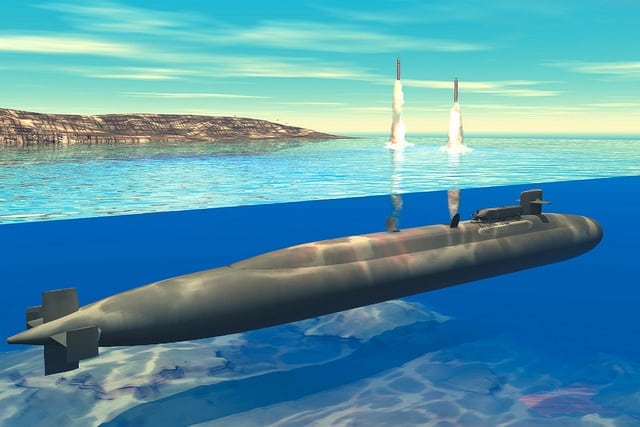
The Department of Energy could be allowed to develop new nuclear warheads, or modify existing ones, without permission from Congress, after the Senate on Thursday defeated an amendment to its 2019 National Defense Authorization Act (NDAA).
The version of the defense policy bill pending before the Senate would still authorize $65 million in 2019 spending for the low-yield, submarine-launched ballistic-missile warhead the Donald Trump administration called on the Department of Energy (DOE) to build as part of the latest Nuclear Posture Review.
The warhead-oversight amendment from Sen. Jack Reed (D-R.I.) narrowly survived a kill vote in the upper chamber Wednesday but was subsequently disposed of in one swift procedural stroke Thursday. Reed’s amendment was attached to a separate amendment, which was declared nongermane and dropped from the bill, taking the warhead measure with it.
On the Senate floor Wednesday, Reed said the version of the NDAA the Senate is expected to vote on as soon as Monday would allow DOE to starting modifying an existing warhead, or developing an entirely new one, simply by requesting funding to do so. After DOE makes a funding request, and before Congress acts on the request, “they can begin reprogramming funds that have already been appropriated to start moving forward with [warhead] development,” according to the ranking member of the Senate Armed Services Committee.
The Reed amendment would have maintained the current law, which requires congress approval for any new DOE warhead work beyond early conceptual and feasibility studies.
Appropriations bills in the House and Senate would provide $65 million for the new low-yield warhead in the budget year that begins Oct. 1: exactly what the White House requested. The NNSA plans to create the weapon by modifying some of the existing W76 warheads now used on Trident II D5 missiles on Ohio-class submarines.
The House has already passed a 2019 DOE appropriations package with funding for the weapon, and the Senate is set to begin debate next week on a so-called minibus package of three appropriations bills that includes the upper chamber’s proposed DOE budget.
The Trump administration says simply possessing a low-yield warhead will deter Russia from using one of its own to win a conflict Moscow starts, but cannot finish, with conventional weapons. Some congressional Democrats have argued the current U.S. nuclear arsenal already serves that purpose.
Reed warned that the new low-yield warhead — which unlike current low-yield options would not have to be carried to a target by an aircraft — might increase rather than decrease the odds of a full-scale nuclear war.
“I am increasingly skeptical that a response to a low-yield Russian attack by an American low-yield counter attack will result in both sides refraining from future use of nuclear weapons,” he said Wednesday on the Senate floor. “In other words, I’m skeptical we will avoid a movement upwards on the escalatory ladder leading to a larger nuclear exchange.”
Once passed, the Senate NDAA must be reconciled with the House version in a bicameral conference committee to produce a unified bill President Donald Trump can sign into law. Conference committees cannot add new language to a bill.
“Senator Reed will keep working to get this done in conference,” an aide wrote in an email Thursday. “His amendment got a majority of votes in the Senate. And there is genuine bipartisan belief that Congress should have a strong oversight role when it comes to nuclear weapons.”
The Senate adjourned this week after a procedural vote to curtail further debate on the 2019 NDAA, setting the stage for a final vote next week. In total, the bill would authorize some $15 billion for NNSA operations, including active nuclear weapons programs and defense nuclear nonproliferation. Like its companion bill in the House, the Senate’s NDAA provides all $2 billion or so the White House sought to continue three life-extension programs and one major alteration for existing nuclear weapons.
Unlike the House’s NDAA, the Senate’s bill would prohibit the National Nuclear Security Administration from canceling construction of the over-budget Mixed Oxide Fuel Fabrication Facility until at least 2020. The facility at DOE’s Savannah River Site in South Carolina is designed to turn 34 metric tons of weapon-usable plutonium into commercial reactor fuel as part of an arms-control pact with Russia. The Energy Department wants to turn the facility into a production plant for fissile nuclear warhead-cores called plutonium pits.
The bill report appended to the Senate’s NDAA would also require the U.S. comptroller general to examine how much money DOE has saved by combining the management and operations contracts for the Pantex nuclear-weapons assembly plant in Amarillo, Texas., and the Y-12 National Security Complex in Oak Ridge, Tenn.